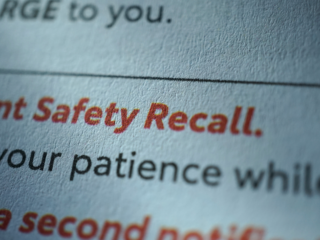The insured, Vesna Catic (“Ms. Catic”), was involved in a motor vehicle collision on July 15, 2016. She applied for accident benefits with her insurer, Aviva General Insurance Company (“Aviva”). She submitted a treatment plan for a psychological assessment on November 15, 2016. Aviva delivered an explanation of benefits, denying the treatment plan, on June 5, 2017. Per the Statutory Accident Benefit Schedule, (“SABS”), the insurer has a 10-day period to deliver the explanation of benefits. There is no dispute that the explanation of benefits was not delivered within that time frame. There is also no dispute that the cost of the proposed treatment plan was not incurred.
The narrow issue before the Divisional Court was based on the interpretation of section 38 of the SABS, and whether costs must be incurred for an insured to become entitled to the treatment plan upon an insurer’s failure to give timely notice of a denial.
The decision, at first instance, concluded that the proposed treatment plan was not reasonable and necessary, and therefore not payable. Upon reconsideration, the adjudicator set aside the LAT’s prior decision and found that the insured was automatically entitled to the disputed treatment plan without proof of the services being incurred due to the delay in notice. This case was then appealed to the Divisional Court by the insurer, Aviva.
Aviva’s position was that the adjudicator erred in finding that the treatment plan was payable. They argued that s. 38(11) of the SABS only requires an insurer to pay for goods and services actually incurred by the insured between the 11th business day following the insurer’s receipt of the treatment plan and the date the insurer gives notice (i.e., the “shall-pay” period).
Ms. Catic’s position was that SABS forms part of consumer protection litigation and the wording in s. 38(11) must be afforded its literal meaning to accomplish the purpose for which the legislation was intended. There is no wording in the legislation to indicate that the insured needs to provide evidence that services in the disputed treatment plan were incurred, and it would be unfair if only those insureds with the financial ability to fund expenses up front would be able to compel the insurer to pay for goods and services during the “shall-pay” period.
As this was a question of law only, the standard of review was correctness. The Divisional Court noted that there are competing decisions from the LAT on this issue. They found in favour of Aviva, stating that s. 38(11) operates to “compel an insurer who fails to provide statutory notice to pay for all items listed in the subject treatment plan, but only if they are incurred and only for the period during which any denial notice remains outstanding.”
Their reasons included that s. 38(15) states the insurer is required to pay within 30 days after receiving an invoice. The payment in response to an invoice indicates the costs must be incurred. Language in the legislation does not specify that an expense needs to be incurred, but it also does not require payment of non-incurred goods and services. The Court highlighted that treatment providers are normally tied to communication between and insured and insurer such that they can send an invoice directly if a treatment plan has been submitted and no denial notice is received within the 10-day notice period. Therefore, the Court states it would be rare that an insured would be expected to shoulder the costs of an unapproved treatment plan during the shall-pay period. Finally, the Court addresses the consequences an insurer faces for failing to provide timely notice, including losing the ability to claim that the insured’s impairments fall within the Minor Injury Guideline.
Costs for the appeal were awarded to Aviva in the amount of $6,000.













